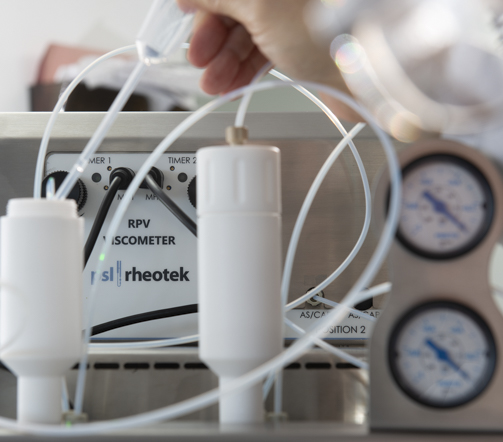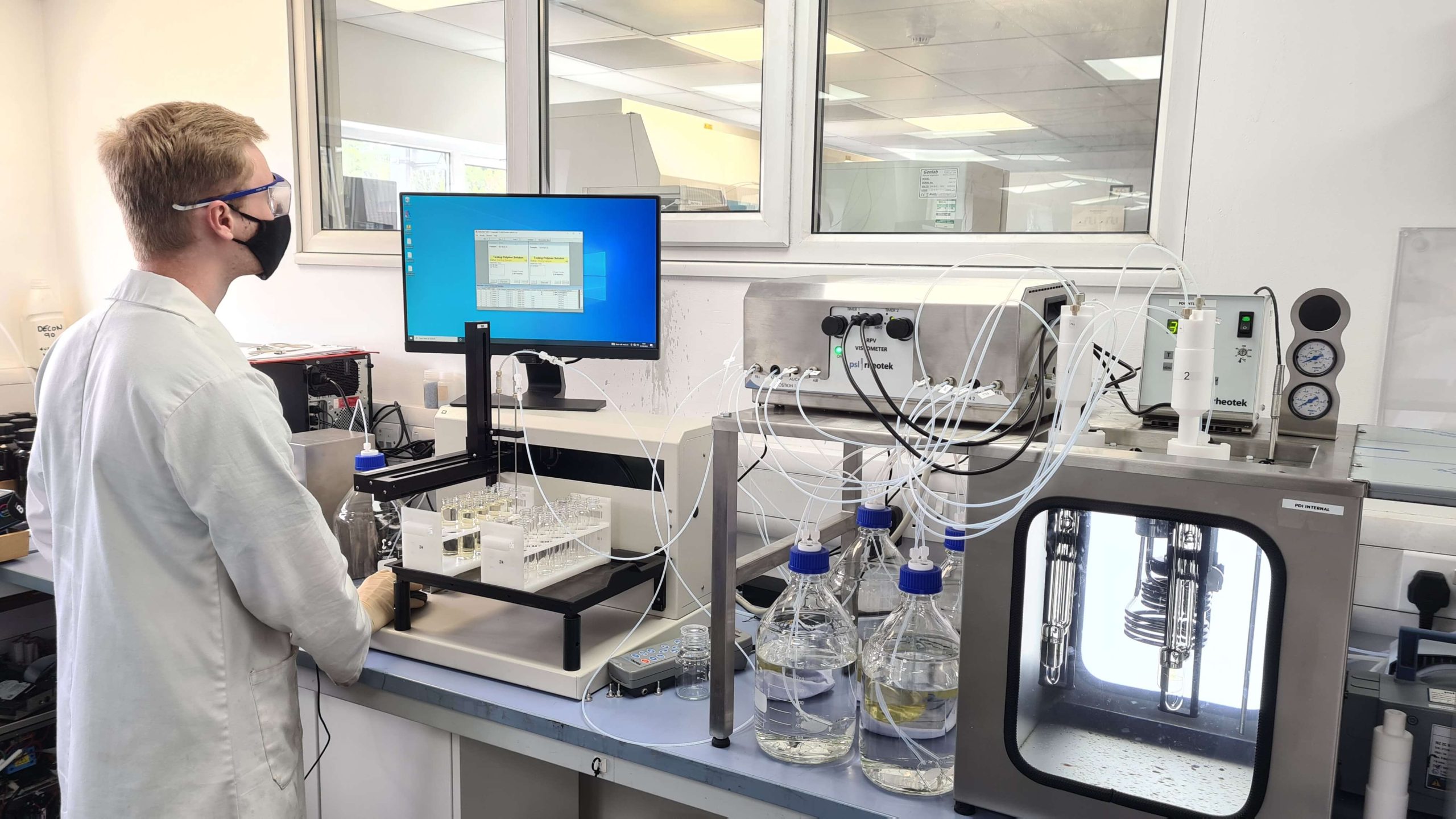ABOUT THE SERVICE
Intrinsic Viscosity of PET as per ASTM D4603, K-Value of PVC etc. Tested by the experts
Solvent based viscosity provides a correlation to the molecular weight of the polymer. The PSL Rheotek Polymer Applications laboratory offers dilute solution testing work on a per sample basis. Post consumer, post industrial and compounded materials tested as well as virgin material.
Compliance
All test work is conducted in full compliance with recognised international test methods as per ASTM, ISO, DIN or other regulatory body.
Versatility
The PSL Polymer Testing Laboratory (based in the United Kingdom) is equipped with the full range of current models of automated PSL Rheotek viscometers for testing the solution viscosity of a wide range of polymers, cellulose and pulp.
Small studies
No minimum quantity of samples needed. Small studies of 1-3 samples catered for.
Recycled materials
Solvent based viscosity is highly appropriate for recycled polymers. PCR and PIR materials measured with full confidence. Solution viscosity results are not affected by rheological changes in the material.
Quick Turnaround
Results are submitted 1-6 weeks after we receive your samples.
Dialogue
Our capillary viscosity experts are available to discuss any questions arising from the test work.
The PSL Rheotek Polymer Testing Laboratory offers solvent based analysis of:
- PET – ASTM D4603 – ISO 1628 – ASTM D2857
- PA – ASTM D789 – ISO 307
- PVC – ASTM D1243 – ISO 1628
- PP/PE (including UHMW) – ASTM D4020 – ASTM D1601 – ISO 1628
- Pulp, cellulose – ASTM D1795 – Tappi T230 – ISO 5351
As well as any other type of polymer that can be dissolved in organic or inorganic liquids.
Results reported will typically include
- Sample ID and description
- Details of the viscometer configuration used for testing
- Concentration (including exact sample and solvent weight)
- Dissolution conditions (temperature and time)
- Average solvent flow time and interim flow times with precision obtained
- Average solution flow time and interim flow times with precision obtained
- Glass capillary viscometer (type, size, serial number constant)
- Testing temperature (including verification of temperature by certified reference thermometer)
Units of results reported: Relative viscosity, Specific viscosity, Reduced viscosity Inherent viscosity to 3 significant places Intrinsic viscosity to 3 significant places.
FAQ
You asked, we answered
I have some compounded polymer samples, can you measure them?
Most likely we can. Please drop us a line on sales@psl-rheotek.com with your question and we will arrange for a quick on-line consultation with a member of our team to discuss. Alternatively, use our contact form.
What is the current lead time on polymer testing?
How long is a piece of string? Testing slots in our polymer laboratory are usually booked about a month ahead. A realistic time frame is 4-6 weeks from our first conversation.
How much does it cost?
The per sample price includes use of the laboratory facilities, labour, chemicals and disposal of chemicals. Quantity discount available on large batches of samples. Contact us to set up an on-line consultation to discuss your project.
Why is IV so much more accurate than a melt flow value?
The IV result is based a solution viscosity test protocol, which provides data obtained at molecular level. This provides the highest possible resolution of results. Typically this will be more detailed than melt flow results by approximately a factor 10.
CUSTOM SOLUTIONS
Searching for custom instrumentation for your unique requirements?
Each PSL Rheotek viscometer system is configured for the owner! A wide variety of international test method protocols are readily available in the software and company specific method protocols are also supported.


